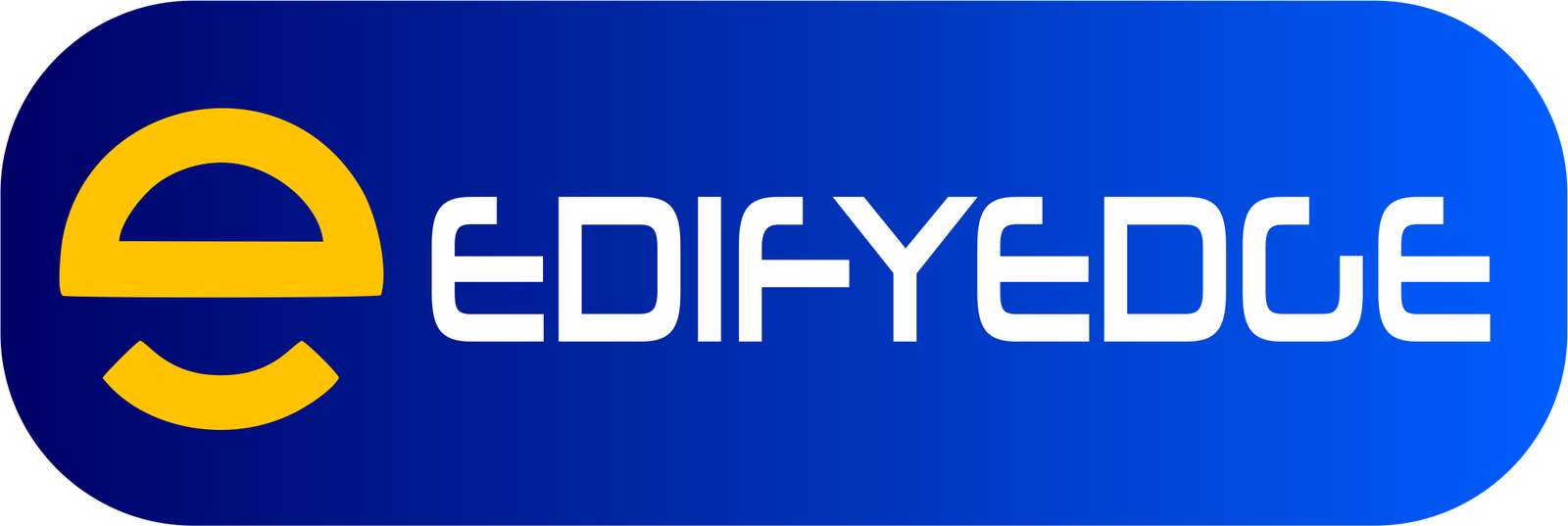What is a Home Equity Loan?
A home equity loan, also known as a second mortgage, allows homeowners to borrow money against the equity they’ve built up in their home. Equity is the difference between the current market value of your home and the outstanding balance on your mortgage.
Home equity loans provide a lump sum of cash upfront that you repay over a fixed term, typically between 5-30 years, at an agreed-upon interest rate. The loan is secured by your home, meaning if you fail to make payments, the lender can foreclose on your property.
Unlike home equity lines of credit (HELOCs), which provide a revolving credit line, home equity loans have a fixed borrowing amount, interest rate, and monthly payment. This makes them better suited for large, one-time expenses like home renovations, debt consolidation, or major purchases.
The key advantage of home equity loans is that they often offer lower interest rates than unsecured loans like personal loans or credit cards, since your home acts as collateral. However, putting your home up as collateral also carries more risk if you can’t make the payments.
What Are the Best Home Equity Loan Rates?
One of the primary advantages of home equity loans is the potential for low interest rates compared to other types of loans or financing options. Since home equity loans are secured by the equity you’ve built up in your home, lenders view them as relatively low-risk, allowing them to offer competitive interest rates.
Current home equity loan rates can vary depending on factors such as your credit score, income, debt-to-income ratio, and the amount of equity you have in your home. However, as a general guideline, home equity loan rates typically range from around 4% to 8% for borrowers with good to excellent credit.
It’s important to shop around and compare offers from multiple lenders to find the best home equity loan rates available to you. Many lenders provide online tools or pre-qualification processes that allow you to see potential interest rates without a hard credit inquiry.
Credit Score, Income, and Loan-to-Value Requirements
Credit Score Requirements
Lenders typically have minimum credit score requirements for home equity loans and lines of credit. A higher credit score demonstrates to the lender that you are a lower-risk borrower and more likely to make your payments on time. Most lenders look for a FICO credit score of at least 620-680 for home equity products, though some may go as low as 600 or require 700+.
Income and Employment Verification
Home equity lenders want to see that you have sufficient, stable income to make the payments. They will ask for proof of employment, such as pay stubs, W2s, or tax returns if you are self-employed. Lenders use debt-to-income ratios to evaluate if your income can reasonably cover your existing debts plus the new home equity payment.
Loan-to-Value (LTV) Ratios
The loan-to-value ratio compares the amount you want to borrow to the appraised value of your home. Lenders limit how much you can borrow against your home equity as a safety buffer. Many cap the combined loan-to-value ratio, including your existing mortgage balance plus the home equity loan, at 80-85% of the property value.
Average Home Equity Loan Rates from Major Lenders
Home equity loan rates can vary significantly between lenders. Here are the current average rates from some of the major national lenders:
Bank of America: For a 10-year fixed home equity loan, rates start at 6.49% APR. For a 20-year loan, rates begin at 7.24% APR.
Chase: Chase’s rates for a 10-year fixed home equity loan start at 6.74% APR. For a longer 20-year term, rates start at 7.27% APR.
Citibank: Citi offers 10-year fixed home equity loans starting at 6.65% APR. Their 20-year loan rates begin at 7.30% APR.
U.S. Bank: 10-year fixed home equity loans at U.S. Bank start at 6.95% APR, while 20-year loans have rates from 7.70% APR.
Wells Fargo: For a 10-year fixed rate home equity loan, Wells Fargo’s rates start at 7.16% APR. Their 20-year loan rates begin at 7.89% APR.
These rates can fluctuate frequently based on market conditions. The loan amount, repayment term, location, lender fees, and your individual credit profile can all impact the rate you receive.
Here is a draft H2 and section content for discussing the pros and cons of different home equity loan rate types:
Comparing Fixed vs. Variable Home Equity Loan Rates
Fixed-rate home equity loans provide stability and predictability with locked interest rates for the entire loan term. The pros are that your monthly payments remain constant, making it easier to budget. However, you may miss out if market rates decline after you lock in. Variable-rate loans initially have lower rates that fluctuate over time based on market indexes. Pros include potential savings if rates go down, but payments can also increase significantly if rates rise sharply.
Deciding between fixed or variable hinges on your tolerance for risk and how long you plan to stay in the home and keep the loan. Those prioritizing payment consistency and predictability may prefer a fixed rate. But if you can closely monitor rates and make extra payments when affordable, a variable rate could save money long-term. Consider your financial situation and how potential payment swings on a variable rate could impact your budget over time.
Tips for Getting the Best Home Equity Loan Rates
Improve Your Credit Score
One of the most important factors that lenders consider when determining home equity loan rates is your credit score. A higher credit score indicates a lower risk of default, so lenders will offer better rates to borrowers with excellent credit. To improve your credit score, pay all your bills on time, keep credit card balances low, and avoid opening too many new credit accounts at once.
Shop Around and Compare Offers
Home equity loan rates can vary significantly from one lender to another, so it’s crucial to shop around and compare offers from multiple lenders. Get quotes from at least three to five different lenders, including banks, credit unions, and online lenders. Compare not only the interest rates but also the fees, repayment terms, and any other conditions that may apply.
Negotiate with Lenders
Don’t be afraid to negotiate with lenders for better rates or terms. If you have a strong credit profile and a low loan-to-value ratio, you may have more leverage to negotiate. You can also use competing offers from other lenders as bargaining chips to get a better deal.
Costs Associated with Home Equity Loans
Home equity loans come with several costs that borrowers should be aware of before applying. These costs can vary depending on the lender and the loan amount, but typically include the following:
Closing Costs: Similar to a traditional mortgage, home equity loans often require closing costs, which can range from 2% to 5% of the loan amount. These costs cover expenses such as appraisal fees, title search fees, and origination fees.
Appraisal Fees: An appraisal is required to determine the current value of your home, which is used to calculate your available equity. Appraisal fees can range from $300 to $500 or more, depending on the size and location of your property.
Annual Fees: Some lenders charge an annual fee, also known as a maintenance fee, for maintaining your home equity loan account. These fees can range from $25 to $100 or more per year.
Prepayment Penalties: While not as common as they once were, some lenders may charge a prepayment penalty if you pay off your home equity loan early. These penalties can be a percentage of the remaining balance or a flat fee, so it’s essential to read the fine print and understand the terms before signing any loan agreement.
It’s crucial to factor in these costs when considering a home equity loan, as they can significantly impact the overall cost of borrowing. Be sure to shop around and compare offers from multiple lenders to find the best rates and terms that fit your financial situation.
Benefits of Using a HELOC for Home Renovations
A home equity line of credit (HELOC) can be a smart way to finance home renovations and remodeling projects. By tapping into the equity you’ve built up in your home, you gain access to a flexible source of funds at relatively low interest rates compared to other financing options.
One of the key benefits of using a HELOC for renovations is the potential for a high return on investment. Many home improvement projects, such as kitchen and bathroom remodels, adding living space, or upgrading energy-efficient features, can significantly increase the value of your home. This increased value can help offset the cost of the renovations and potentially provide a substantial return when you eventually sell the property.
Additionally, the interest paid on a HELOC may be tax-deductible if the funds are used for home improvements that substantially increase the value of your home. This tax advantage can further enhance the overall return on your renovation investment.
Another advantage of using a HELOC for renovations is the flexibility it provides. Unlike a traditional home equity loan, which provides a lump sum upfront, a HELOC acts more like a credit card, allowing you to borrow only the amount you need as you progress through the renovation project. This can help you avoid paying interest on funds you don’t immediately require, potentially saving you money in the long run.
Overall, a HELOC can be an attractive financing option for homeowners looking to renovate or remodel their homes, offering the potential for a high return on investment, tax benefits, and flexible borrowing terms.
Understanding Home Equity Loan Rates
What is a Home Equity Loan?
A home equity loan, often referred to as a second mortgage, allows homeowners to borrow against the equity they’ve built up in their homes. Equity represents the portion of the home’s value that the owner truly owns outright after subtracting any outstanding mortgage balances. By tapping into this equity, homeowners can access a lump sum of cash to use for various purposes, such as home renovations, debt consolidation, or major expenses.
Home Equity Loan Rates Explained
Home equity loan rates are the interest rates charged on the borrowed funds from a home equity loan. These rates can vary significantly depending on several factors, including:
- Credit Score: Lenders typically offer lower rates to borrowers with higher credit scores, as they are considered less risky.
- Loan-to-Value (LTV) Ratio: The LTV ratio compares the loan amount to the home’s appraised value. Lower LTV ratios generally result in better rates.
- Loan Term: Longer loan terms often come with higher interest rates, while shorter terms may have lower rates.
- Lender and Market Conditions: Different lenders may offer varying rates, and overall market conditions can influence rate fluctuations.
Types of Home Equity Loans and Rates
Home equity loans come in different forms, each with its own rate structure:
-
Cash-out Refinance: This option involves refinancing your existing mortgage into a new, larger loan, allowing you to tap into your home’s equity. Cash-out refinance rates are typically similar to traditional mortgage rates.
-
Personal Loans: While not specifically home equity loans, personal loans can provide access to funds based on your credit profile and income. Personal loan rates tend to be higher than home equity loans but may be easier to qualify for.
-
Home Equity Line of Credit (HELOC): A HELOC functions like a revolving credit line secured by your home’s equity. HELOCs often have variable interest rates that fluctuate with market conditions.
-
Credit Cards: While not directly tied to home equity, credit cards can be used for various expenses. However, credit card interest rates are generally higher than home equity loan rates, making them a more expensive option.
It’s crucial to shop around and compare rates from multiple lenders to find the best deal for your specific situation. Additionally, consider the overall costs, including fees and closing costs, to determine the most affordable option for accessing your home’s equity.
Online Calculators and Educational Resources
Online calculators are handy tools that allow you to estimate your potential home equity loan amount, monthly payments, and overall costs based on your home’s value, existing mortgage balance, credit score, and other factors. Many banks and lenders provide these calculators on their websites to help borrowers understand their options and make informed decisions.
In addition to calculators, reputable lenders often offer educational resources such as guides, articles, and videos that explain the home equity loan process, eligibility requirements, and potential benefits and risks. These resources can help you navigate the complexities of home equity loans and determine if this type of financing is suitable for your needs.
By utilizing online calculators and educational materials, you can gain a better understanding of the potential costs, repayment terms, and overall feasibility of a home equity loan before applying. This knowledge can empower you to make sound financial decisions and negotiate more favorable terms with lenders.



